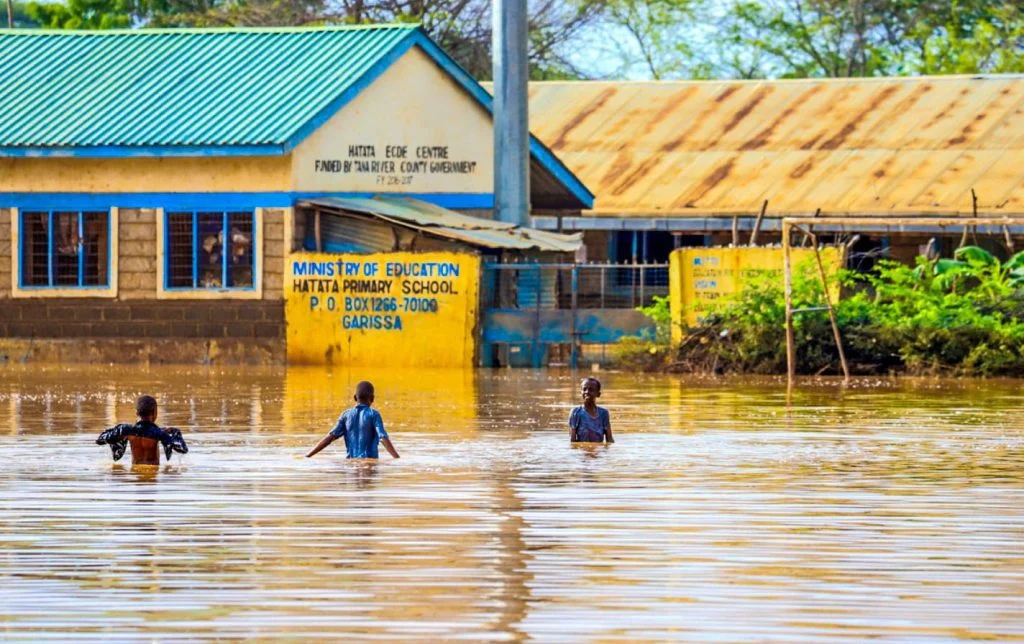Torrential downpours have wreaked havoc across Kenya, causing widespread flooding and devastation. The relentless rains, exacerbated by climate change, have submerged entire villages, displaced hundreds of thousands, and tragically claimed many lives.
As the country battles these floods, Google.org, the philanthropic arm of Google, has stepped up to offer crucial support with a $250,000 grant aimed at aiding relief efforts for Kenyans affected by this disaster.
The Scale of the Disaster
The flooding has varied in severity across different regions, with some areas experiencing their worst floods in decades. According to the Kenya Red Cross Society and other authorities, the floods have led to:
- The loss of at least 9,973 livestock.
- Damage to 41,562 acres of cropland and 61 roads.
- Impact on 886 businesses, 1,967 schools, 1,465 water sources, and 62 health facilities across 11 out of 42 affected counties as of May 9.
- An estimated 267 people have died, with many more injured or missing. Approximately 281,835 people (56,367 families) have been displaced, while nearly 380,573 individuals (76,114 families) have been affected by the persistent heavy rains and flooding.
The human toll is staggering, with the floods leaving countless Kenyans grappling with the loss of loved ones, homes, and livelihoods.
Google.org: A Lifeline in Crisis
In response to this urgent crisis, Google.org has mobilized resources to support immediate relief efforts. The $250,000 grant will be directed towards:
- Emergency Relief Agencies: Partnering with established NGOs and organizations working on the ground to provide immediate assistance. These funds will help supply critical needs such as food, clean water, shelter, and medical care for displaced families.
- Supporting Long-Term Recovery: Recognizing that the road to recovery is long, part of the grant will also focus on rebuilding efforts, including infrastructure repair and initiatives to help communities restore their livelihoods.
A Multi-Faceted Approach
Beyond the financial contribution, Google.org is leveraging its technological expertise to enhance relief efforts:
- Emergency Information Dissemination: Using platforms like Google Search and Google Maps to provide vital information, including weather warnings, evacuation routes, and locations of relief centers.
- Volunteer Mobilization: Encouraging employee volunteers to support local relief efforts and connecting individuals interested in volunteering with local organizations through Google for Nonprofits.
The Long Road to Recovery
The $250,000 grant from Google.org is a crucial boost for ongoing relief efforts, providing immediate aid to those affected. However, the challenges ahead are immense. Rebuilding damaged infrastructure, reviving lost livelihoods, and ensuring access to clean water and sanitation in flood-affected areas will require sustained collaboration between the Kenyan government, international aid agencies, and private sector partners like Google.org.
A Call to Action: Supporting Kenya in Its Time of Need
The floods in Kenya serve as a stark reminder of the growing threat posed by climate change. While Google.org’s contribution is significant, it is essential for the global community to take further action:
- Donate to Reputable NGOs: Supporting established relief organizations ensures that resources reach those in need.
- Raise Awareness: Spreading information about the floods can encourage more people to contribute and show solidarity with Kenya.
- Support Long-Term Initiatives: Committing to ongoing support for Kenya’s reconstruction efforts is vital for a sustainable recovery.
Google.org’s Grant: A Spark of Hope Amidst the Crisis
While the $250,000 grant is a significant step forward, it’s important to view it in the context of the broader crisis. According to the World Food Programme (WFP), over 3.5 million people in Kenya face acute food insecurity due to the floods. This highlights the importance of leveraging partnerships with NGOs like the Kenya Red Cross and ActionAid Kenya, which have the infrastructure and networks to deliver aid efficiently.
Beyond Immediate Relief: Building Resilience for the Future
As Kenya begins its recovery, Google.org’s contribution can extend beyond immediate aid. Potential initiatives include:
- Supporting Early Warning Systems: Investing in robust systems for monitoring extreme weather events can significantly reduce the impact of future floods.
- Promoting Climate-Smart Agriculture: Supporting initiatives that encourage resilient agricultural practices can help communities adapt to climate change.
- Investing in Sustainable Infrastructure: Building flood-resistant infrastructure will be essential for protecting communities against future extreme weather events.
Conclusion: A Collective Effort
The devastating floods in Kenya underline the urgent need to address climate change and enhance community resilience. Google.org’s contribution provides critical support, but a concerted effort from governments, international organizations, and individuals worldwide is necessary to help Kenya recover and build a more resilient future. By harnessing the power of technology and fostering collaboration, we can support Kenya in emerging stronger from this crisis and better prepare for future challenges.























